NFT Sales Value Calculator
Investment Analysis
Your investment in could potentially yield:
Based on historical sales data and market trends, this represents a return on investment.
Top 5 Most Expensive NFTs
When we talk about Non-Fungible Tokens (NFTs) are unique digital assets recorded on a blockchain that prove scarcity and ownership, the headline numbers often sound surreal. From a single collector spending tens of millions to thousands of buyers pooling together for a fractional masterpiece, the market’s biggest deals have reshaped how we think about art, finance, and community.
Key Takeaways
- "The Merge" holds the all‑time record at $91.8million, sold through a novel fractional model.
- Beeple’s "Everydays: The First 5000 Days" remains the highest single‑collector purchase at $69.3million.
- CryptoPunks, especially rare Alien and Ape variants, dominate the high‑end resale market.
- Most mega‑sales happened during the 2021‑2022 boom; prices have corrected but core collector appetite persists.
- Understanding the technology, provenance, and buyer motivations is crucial before chasing the next record.
What Makes an NFT Sale "Expensive"?
Two forces drive astronomical price tags: rarity and narrative. An NFT that is part of a limited series-like the 10,000‑item CryptoPunk collection-already has built‑in scarcity. Add a compelling story-whether it’s a groundbreaking artistic process, a historic auction house debut, or a high‑profile buyer-and the perceived value spikes.
Technology also matters. Sales on the Ethereum blockchain carry the weight of a large, secure network, but they also incur hefty gas fees, which can add hundreds of dollars to a transaction. When a piece introduces a novel smart‑contract feature-like the mass‑unit system in "The Merge"-it creates a new kind of ownership model that collectors find exciting enough to pay premium prices.
Ranking the Top 5 Most Expensive NFTs
| Rank | NFT | Artist / Creator | Sale Price | Sale Date | Platform |
|---|---|---|---|---|---|
| 1 | The Merge - a dynamic, fractional artwork | Pak (anonymous) | $91.8million | December2021 | Nifty Gateway |
| 2 | Everydays: The First 5000 Days | Beeple (Mike Winkelmann) | $69.3million | March2021 | Christie's (Ethereum) |
| 3 | Clock | Pak & Julian Assange | $52.7million | April2021 | OpenSea (Ethereum) |
| 4 | Human ONE | Beeple | $28.95million | November2021 | Christie's (Ethereum) |
| 5 | CryptoPunk #5822 | Larva Labs (Matt Hall & John Watkinson) | $23.7million | May2021 | Larva Labs Marketplace (Ethereum) |
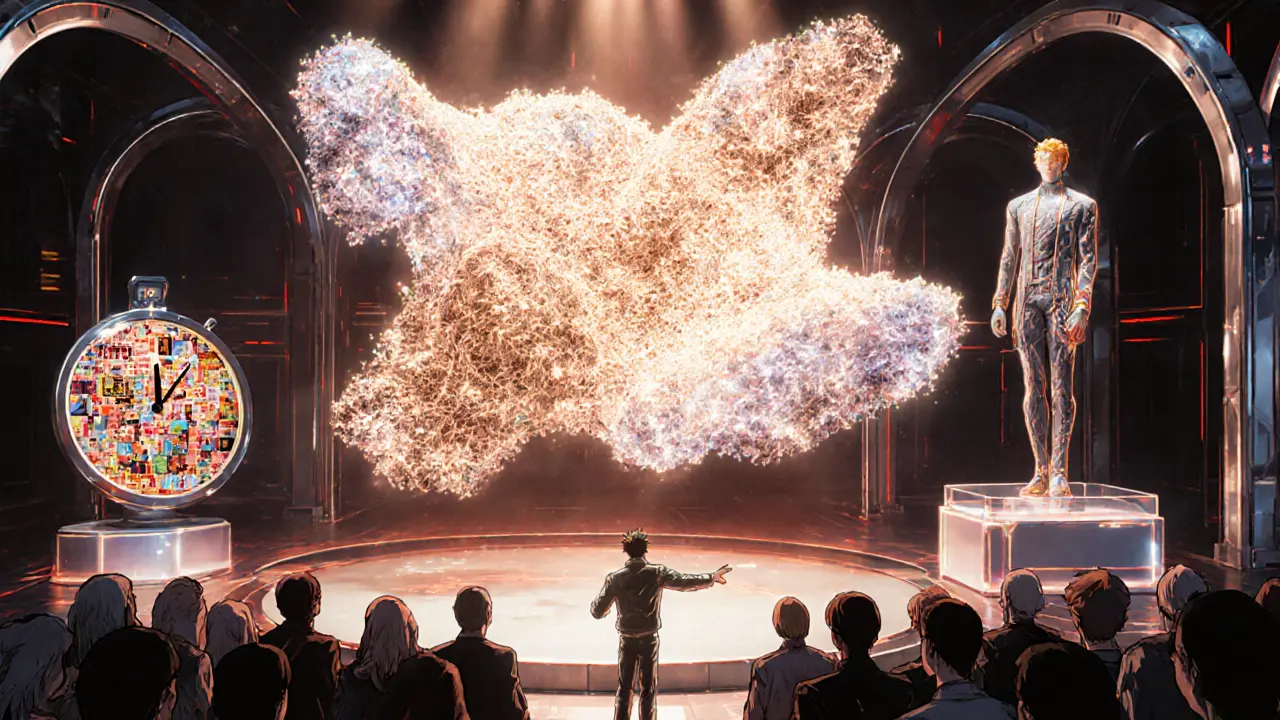
Deep Dives into the Record‑Setters
The Merge - Pak’s Fractional Masterpiece
Pak, the enigmatic figure behind dozens of high‑profile drops, launched "The Merge" as a 48‑hour public offering. Instead of a single token, buyers purchased “mass” units that could be combined. At the close, 28,893 collectors owned a total of 295,417 units, collectively paying $91.8million. The artwork’s visual changes directly with the quantity owned, turning the sale itself into a living, evolving piece.
Technical innovation was key: the smart contract tracked each unit’s ownership and allowed merging, a feature rarely seen outside traditional securities. The sale’s structure mirrored a decentralized IPO, attracting both crypto‑savvy investors and art collectors who wanted a slice of history.
Everydays: The First 5000 Days
Beeple’s magnum opus is a collage of 5,000 digital canvases created daily over 13years. The piece debuted at Christie’s in March2021, starting at a modest $100 opening bid and soaring to $69.3million. Collector Vignesh Sundaresan (MetaKovan) said the purchase was “to show the world that digital art matters.”
The NFT’s significance lies in its cultural archive-each frame captures a moment in politics, pop culture, or personal reflection. Its provenance is crystal‑clear: the Ethereum transaction hash, the auction house catalogue, and the artist’s public record all align, giving buyers absolute confidence.
Clock
Created jointly by Pak and WikiLeaks founder Julian Assange, "Clock" is a constantly updating piece that counts down to an unknown future event. The $52.7million sale in April2021 was notable for its political undertones and the use of an openly activist creator.
Because the artwork changes in real time, the underlying smart contract must fetch timestamp data from an oracle, a relatively advanced on‑chain operation that adds to its rarity.
Human ONE
Beeple’s "Human ONE" blends a physical sculpture with a moving digital avatar, streamed on a loop. Sold for $28.95million at Christie’s, the piece demonstrates how NFTs can bridge the gap between tangible and virtual art. The buyer, Ryan Zurrer, is a noted Web3 venture capitalist, underscoring the growing overlap between crypto finance and high‑end collecting.
CryptoPunk #5822
One of the handful of rare “Ape” variants, CryptoPunk #5822 fetched $23.7million in May2021. The punk’s value comes from its scarcity-only 24 Ape punks exist out of 10,000 total. Each CryptoPunk lives on Ethereum, and the original contract’s simplicity makes it a benchmark for provenance verification.
Other Noteworthy High‑Value NFTs
While the top five dominate headlines, several other sales deserve a mention. Ringers #109 by Canadian coder Dmitri Cherniak sold for $6.93million on Art Blocks, showcasing the rising premium on generative art. On the Tron blockchain, TPunk #3442 (nicknamed "Joker") was bought by Justin Sun for $10.5million, marking the most expensive Tron‑based NFT to date.
Who’s Buying These Mega‑NFTs?
The buyer pool ranges from newly minted crypto millionaires to seasoned venture capitalists. MetaKovan’s $69.3million Beeple purchase was framed as a cultural statement. Ryan Zurrer’s acquisition of "Human ONE" aligns with his role as a Web3 investor. Justin Sun’s TPunk buy came after a near‑miss on Beeple’s record, illustrating how personal rivalry can drive price spikes. Meanwhile, the 28,893 participants in "The Merge" represent a democratized model where even a single “mass” unit cost roughly $310, making fractional ownership possible for smaller investors.
Market Evolution Since the 2021‑2022 Boom
After the fireworks of late 2021, the NFT market entered a correction phase. Floor prices for CryptoPunks have fallen 40‑60% from their peaks, yet the most coveted Alien and Ape variants still command six‑figure sums. Art Blocks generative pieces have stabilized around mid‑four‑figure ranges, while new utility‑focused NFTs (gaming skins, metaverse land) have shown better resilience.
Gas fees have cooled as Ethereum moved toward proof‑of‑stake, reducing transaction costs from $200‑$300 down to under $20 on average. This lower barrier has reignited interest in smaller‑scale drops, but the appetite for ultra‑high‑value, one‑off art remains limited to wealthy collectors and institutions.
Takeaways for Prospective Buyers
- Verify provenance. Look for on‑chain transaction hashes, reputable marketplaces, and third‑party audits.
- Understand the smart‑contract mechanics. Fractional models (like "The Merge") can dilute ownership but also increase liquidity.
- Consider the artist’s narrative. A strong story-whether it’s a historic first auction, a political statement, or a technical breakthrough-adds intangible value.
- Watch the broader market. Prices tend to follow crypto sentiment; a bullish Bitcoin rally often lifts NFT valuations.
- Plan for long‑term holding. High‑value NFTs are illiquid; expect to hold for years before finding a buyer at a comparable price.
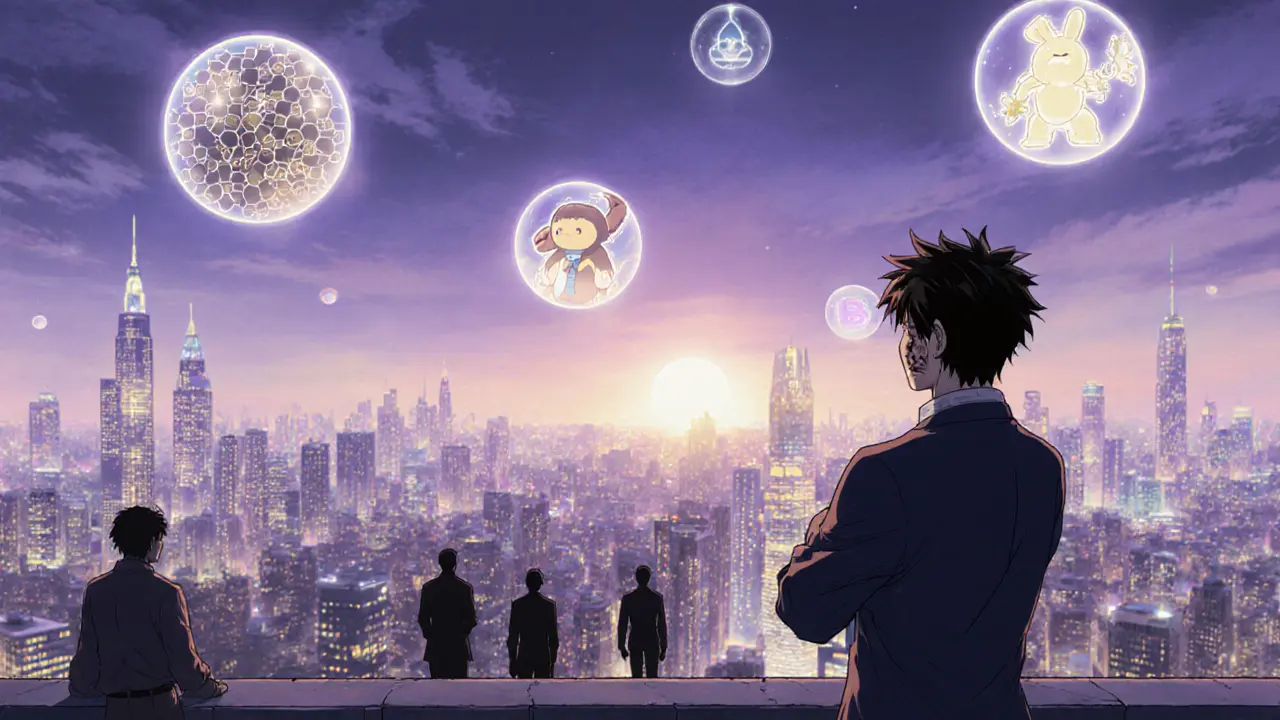
Frequently Asked Questions
What is the difference between a fractional NFT and a regular NFT?
A regular NFT represents a single, indivisible token that one owner holds entirely. A fractional NFT splits ownership into many smaller tokens-each token represents a share of the original artwork. The "mass" units in "The Merge" are a prime example, where thousands of buyers collectively own one piece.
Why do most record‑breaking NFT sales happen on Ethereum?
Ethereum offers the largest developer ecosystem, robust smart‑contract capabilities, and widespread institutional recognition. Its liquidity and security make high‑value buyers comfortable committing tens of millions.
Can I expect a similar price surge if I buy a top‑tier CryptoPunk today?
Price appreciation is possible but not guaranteed. The market now values rarity (Alien, Ape) more than pedigree alone. Look at recent sales, floor trends, and overall crypto sentiment before investing.
How do auction houses verify the authenticity of an NFT?
Auction houses like Christie’s request the contract address, token ID, and transaction hash from the seller. They then run the data through blockchain explorers and often partner with third‑party verification firms to confirm that the token is genuine and not a copy.
Is buying an NFT a good hedge against inflation?
NFTs can act as a hedge if the underlying asset appreciates due to cultural significance or scarcity. However, the market is still highly speculative, and price swings can be extreme. Treat NFTs as a high‑risk, high‑reward component of a diversified portfolio.


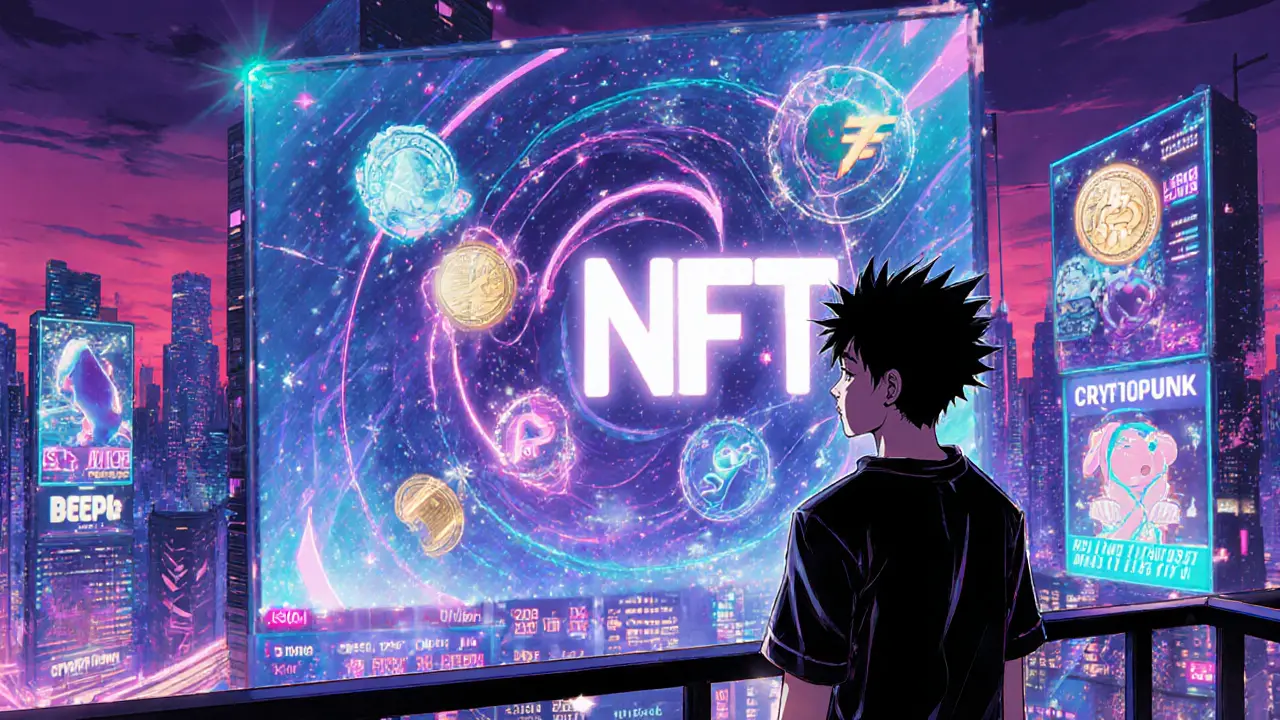
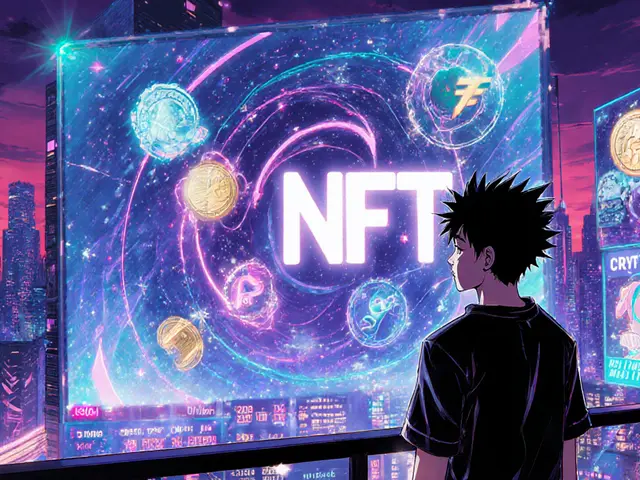
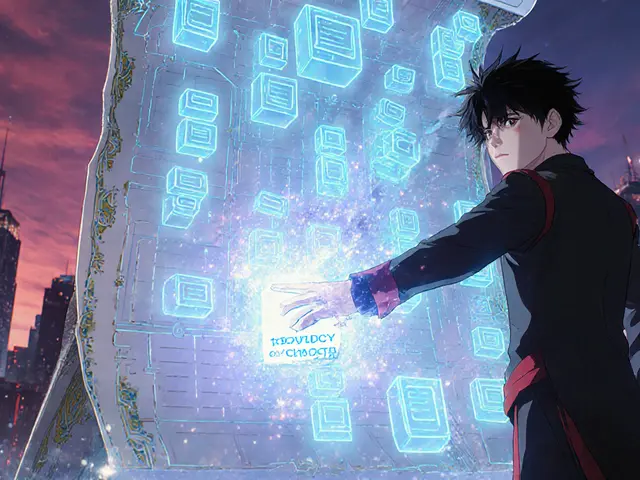
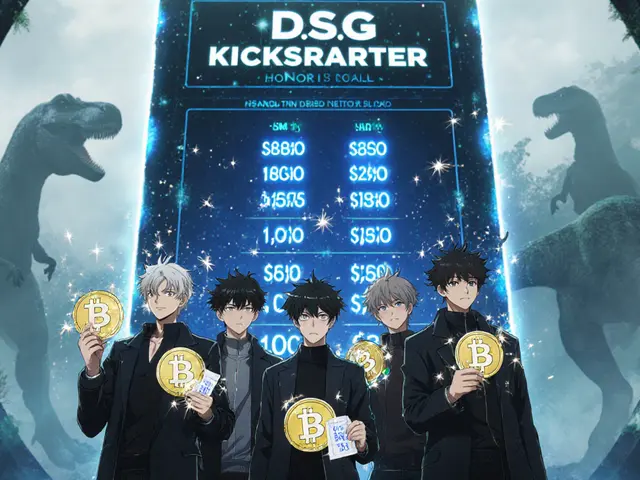
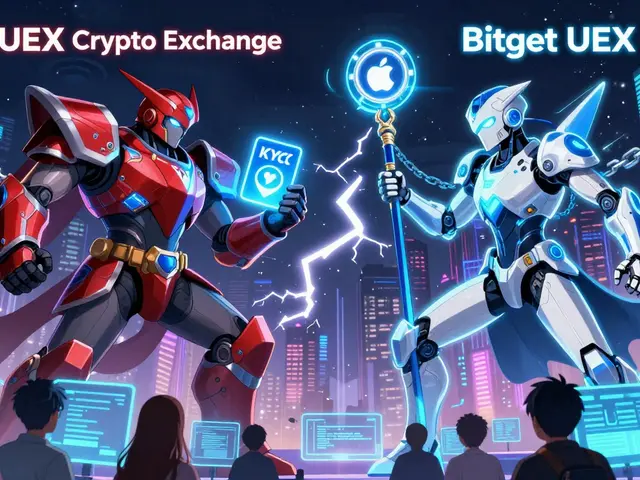
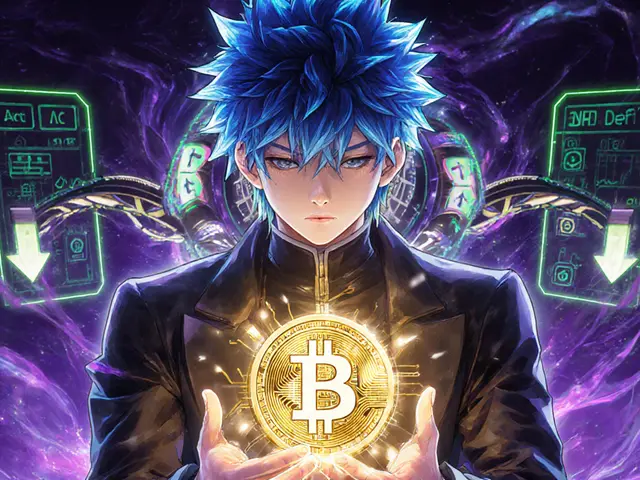
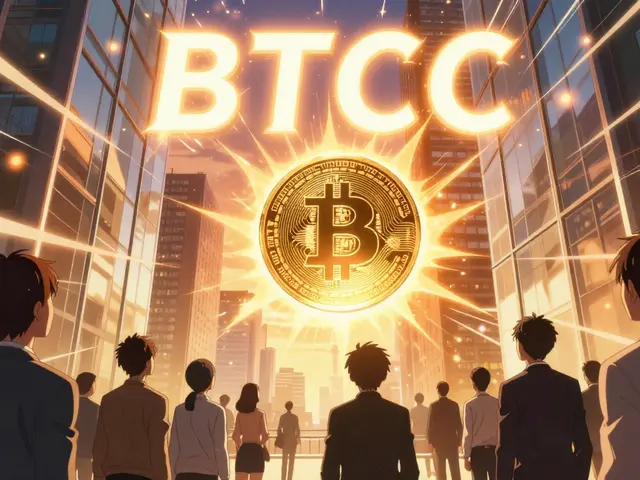
Comments (14)
MARLIN RIVERA
August 13, 2025 AT 03:03 AMThe numbers look impressive at first glance, but they mask a fragile market built on speculation. When a single artwork fetches ninety‑one million dollars, the underlying ecosystem is still riddled with illiquid assets. Most collectors are merely betting on future hype rather than intrinsic value. The concentration of wealth in a handful of pieces makes the whole space vulnerable to sudden sentiment shifts. Until regulatory clarity and sustainable demand emerge, these record‑breaking sales remain outliers rather than a sustainable trend.
Nathan Blades
August 24, 2025 AT 16:50 PMImagine turning a digital canvas into a legacy that lives on the blockchain-it's a thrilling frontier for creators. By studying the sales of The Merge and Beeple, newcomers can spot patterns that hint at future opportunities. Diversifying your portfolio across emerging artists can hedge against the volatility that haunts high‑profile drops. Keep the momentum alive; every bold experiment adds a new brushstroke to the evolving tapestry of digital art.
Somesh Nikam
September 5, 2025 AT 06:37 AMSeeing those staggering price tags can feel overwhelming, especially if you’re just stepping into the NFT world. It helps to break down the numbers: the top five sales account for a small fraction of overall market volume. Focus on projects with strong community backing and transparent royalties to ensure lasting value. Remember, patience and education are your best allies in navigating this rapidly shifting landscape.
Jan B.
September 16, 2025 AT 20:23 PMI agree with the need for community focus; it’s what keeps projects alive.
Debby Haime
September 28, 2025 AT 10:10 AMWhoa, those figures are mind‑blowing, and they prove that digital art can command real‑world attention! If you’ve been on the fence about NFTs, now’s the perfect time to dive in and explore the creative possibilities. Look for artists who blend technical skill with bold storytelling; that combo often leads to the next big breakout. Stay curious, stay brave, and let the momentum drive you toward fresh horizons.
Andy Cox
October 9, 2025 AT 23:57 PMThe hype cycle keeps looping, and it’s exhausting to watch.
Courtney Winq-Microblading
October 21, 2025 AT 13:43 PMWhen neon pixels crystallize into multimillion‑dollar assets, we’re witnessing a cultural alchemy that redefines ownership. The Merge, for instance, isn’t just a code snippet; it’s a statement about collective value and the fluidity of artistic collaboration. Such pieces challenge our conventional notions of scarcity, prompting us to ask what truly makes something priceless. As the blockchain records these transactions, history silently catalogs a new chapter of human creativity. It’s a vivid reminder that art, in any form, is as mutable as the imagination that births it.
Jayne McCann
November 2, 2025 AT 02:30 AMNot all that glitters is gold; many of those sales are pure hype.
Richard Herman
November 13, 2025 AT 16:17 PMWhile the headline numbers capture our imagination, it’s worth noting that the broader NFT ecosystem thrives on community and utility. Projects that embed real‑world benefits, like access to events or exclusive content, tend to sustain interest longer than pure speculation. Embracing cultural diversity in digital art also enriches the space, making it more resilient to market swings. A balanced perspective helps us appreciate both the excitement and the challenges ahead.
Parker Dixon
November 25, 2025 AT 06:03 AMThe meteoric rise of NFTs has sparked a renaissance in how we perceive digital ownership, and the record‑breaking sales only amplify that narrative. When The Merge shattered the $90 million barrier, it signaled that collectors are willing to invest astronomical sums for groundbreaking concepts, not just aesthetic appeal. This willingness stems from a convergence of factors: the maturation of blockchain technology, the rise of celebrity involvement, and a growing appetite for tokenized experiences. Yet, behind the glittering headlines lies a complex ecosystem where liquidity, volatility, and regulatory uncertainty intertwine. For prospective investors, the first step is to scrutinize the provenance of each piece, ensuring that the creator’s identity and the smart contract’s terms are transparent. Next, examine the community’s vibrancy; active Discords and regular updates often correlate with sustained value. Additionally, consider the token’s utility-does ownership grant exclusive access, royalties, or future airdrops? Such functional benefits can act as buffers against market downturns. It’s also prudent to diversify across different art styles and blockchain platforms, mitigating the risk of platform‑specific failures. Historical data shows that while flagship sales like Beeple’s can inflate market sentiment, the majority of NFTs experience modest appreciation over time. Therefore, setting realistic expectations and avoiding the temptation to chase every headline is essential. Educational resources, such as market analysis reports and technical deep‑dives, empower collectors to make informed choices. Finally, remember that the cultural impact of NFTs extends beyond price tags; they democratize art distribution and give emerging creators a global stage. By balancing enthusiasm with due diligence, participants can navigate this thrilling yet volatile frontier responsibly.
Stefano Benny
December 6, 2025 AT 19:50 PMTL;DR: the hype engine fuels price spikes, but the underlying fundamentals remain thin 🚀📉. While the long‑form post praises diversification, most of those “utility tokens” are just smoke‑filled wrappers over speculative assets. In VC‑speak, you’re buying into a hype‑cycle MVP, not a sustainable product market fit. Keep an eye on burn‑rate metrics and network effects before pouring capital.
Bobby Ferew
December 18, 2025 AT 09:37 AMOh great, another glorified ledger of how the ultra‑rich throw money at pixel art while the rest of us scramble for crumbs. The buzzwords keep rolling-‘decentralized ownership,’ ‘digital scarcity’-but they mask the fact that most of these NFTs will end up as dormant tokens on forgotten wallets. It’s almost theatrical how the media latches onto a $90 million sale and pretends it represents a healthy market. Meanwhile, the genuine artists struggling to make ends meet get sidelined by celebrity hype. If you’re looking for genuine innovation, you might have to look past the headline‑grabbing price tags.
celester Johnson
December 29, 2025 AT 23:23 PMPhilosophically speaking, the obsession with price points reflects a deeper societal yearning for validation through wealth. Yet, when validation becomes a commodity, we risk conflating monetary value with artistic merit. The narrative you’ve constructed cleverly critiques the status quo, but it also reinforces the very sensationalism it decries. In the end, the market’s direction is shaped by collective belief-a belief that can be both empowering and perilous.
Prince Chaudhary
January 10, 2026 AT 13:10 PMRespectfully, the surge in high‑value NFTs showcases the potential for digital creators to earn a living through innovative mediums. It’s encouraging to see such enthusiastic participation from artists worldwide, and it sets a precedent for future collaborations. By maintaining transparent practices and fostering inclusive communities, we can ensure this momentum translates into sustainable growth.